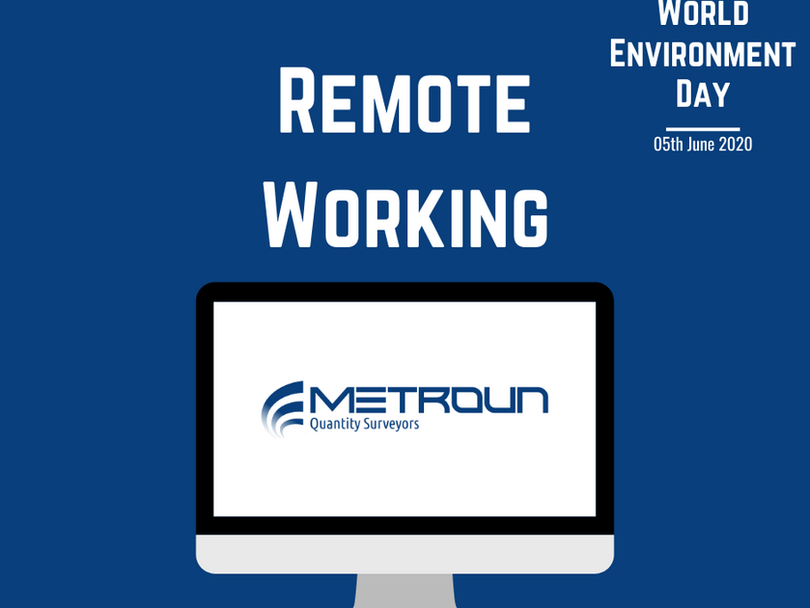When we talk about the benefits of remote work, we normally talk about the benefits for people: for remote staff benefiting from flexibility, and for employers benefiting from retaining top talent by offering flexibility.
But, in honour of this holiday, we’re going to share a few ways working from home helps the environment, too.

World Environment Day 2020 is on Friday 05th and this year’s theme is “Time for Nature”. With much of the world working from home due to Coronavirus (COVID-19), the environment and nature has had quite a resurgance.
During this time when many of us are working from home, there’s been a reduction in traffic and pollution, and our individual carbon footprints have shrunk significantly as a result. This unique situation has increased our awareness of how working from home and sustainability go hand-in-hand.
The question is: Will we be able to continue this practice once we “return to work”?
While we can’t be certain of the answer just yet, we do know that remote work can have a positive impact on the environment. Kate Lister, the President of Global Workplace Analytics, says, ” … there is no easier, quicker, and cheaper way to reduce your carbon footprint than by reducing commuter travel.”
After analysing the results of the Global Work-From Home Experience Survey, Global Workplace Analytics predicts that 25-30% of the workforce will work from home on a multiple-days-a-week basis by the end of 2021. As we adapt the way we work, there’s an opportunity to create positive change.
Environmental Benefits of Working from Home
– You reduce food and plastic waste.
– You save energy.
– You don’t have to travel.
1. You reduce food and plastic waste.
When you work from home, you are literally steps away from the kitchen. Compare your kitchen to a staff kitchen and you’d see large differences. In work, the H&S standards require all staff have access to hot water and somewhere to heat their food. This pretty much consists of a few microwaves and a hot water boiler for tea’s and coffees meaning a large number of people buy food out. Sadly this contributes to single-use plastic containers being used.
In your kitchen however, you have an array of equipment and have the ability to create your food from scratch. This can eliminate food and plastic waste and also have the added perk of reducing certain plastic utensils by using your own cups, cutlery, and plates for eating and drinking throughout the day.
2. You save energy.
Office temperatures need to be regulated to account for keeping multiple people warm or cool during the day, but with fewer people working from home, you can regulate your home’s temperature to your exact preference not changing it all day.
It is also easier to manage your own electrical output when you’re working from home. In offices multiple rooms have lights and equipment on whereas in your home you can restrict the use of power by just working in one room or area throughout the day.
The downside is that you’d be using your own electricity compared to your workplaces electricity.
3. You don’t have to travel.
The most impactful part of working from home is the fact that you don’t need to commute to do so. By skipping out on your commute, whether you get to work by driving, taking the bus, or calling for a carshare, you’ll forgo carbon dioxide being emitted into the atmosphere.
As people begin to return to work, business leaders will need to consider if travel for conferences and meetings is necessary. With the increased usage and adoption of video conferencing tools, like Microsoft Teams, they might be more inclined to host a virtual meeting, rather than gathering in-person.
Not only does less business travel mean reduced carbon emissions, but it can also provide cost savings to employers and employees. Global Workplace Analytics found:
“… a typical employer can save about £9,000/year for every person who works remotely half of the time. Employees can save between £2,000 and £3,000 a year (working remotely half the time) and even more if they are able to move to a less expensive area and work remotely full time.”
Final Thought
According to a 2017 survey conducted by US career site FlexJobs, they found remote work to be the most sought-after perk, with 81 per cent of employees selecting this as the type of work flexibility they want most. Partner this with the cost savings for both employer and employees, the environmental benefits and even the fact that work productivity can actually increase (according to a 2 year Stanford study. Results can be found in this video)
Remote working seems to have been given a push forward due to the most unlikely of situations with employers and employees starting to see the benefits of working from home.
Although we don’t know what will happen when we “return to work”, we do know that remote working will be given more of a chance in the future.
How can you help the environment whilst working from home
- Turn off lights when you leave a room
- Shutdown your computer and unplug any extensions not in use at the end of the day
- Replace your light-bulbs with energy-efficient LED ones
- Look at changing your energy tariff to a “green” tariff (you could actually save money)
- Consider going for a walk at lunchtime instead of jumping in the car to go somewhere
- Clean your workspace with eco/non-toxic cleaning products
- If you do need to print at home, print on both sides
- Recycle your used toner and paper
Our policy for Remote Working in Metroun
From the outset here at Metroun, we have actively encouraged remote working. We feel our staff are more productive, happy and feel more valued and trusted working from home. This is why we made the decision to have a Virtual Office from Day 1. This is an office where mail is received and face-to-face meetings can be held but that’s it. All other business can be completed at home. We feel that maximising our usage of systems such as Microsoft Teams, cloud-based storage and the good old-fashioned telephone has ensured the customer remains our main focus.
#worldenvironmentday2020 #remoteworking #workingfromhome #quantitysurveying #quantitysurveyor





